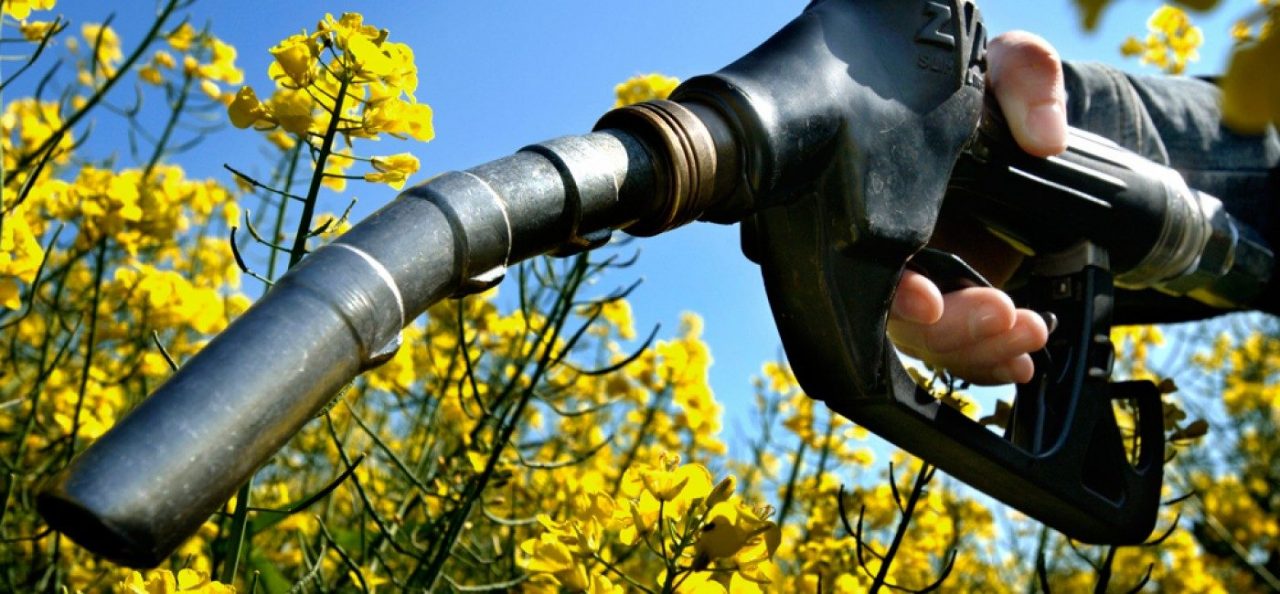U.S. biofuel rules to throttle canola

Chris Vervaet doesn’t know if the glass is half full or half empty after a flurry of biofuel policy announcements in the United States.
There were some positives and negatives for Canada’s canola industry, said the executive director of the Canadian Oilseed Processors Association.
The U.S. Environmental Protection Agency (EPA) released its proposed rule for the Renewable Fuel Standard renewable volume obligations (RVOs).
The biomass-based diesel mandate, which includes biodiesel, renewable diesel and sustainable aviation fuel, was set at 5.61 billion gallons for 2026 and 5.86 billion gallons for 2027.
That is a massive increase from the 3.35 billion gallon mandate for 2025 and is even higher than the 5.25 billion gallons that a coalition of oil and biofuel groups had been lobbying for.
That is good news for Canada’s crushers and canola farmers.
The bad news is that the EPA also proposed that foreign biofuels and feedstocks would only generate 50 per cent of the Renewable Identification Numbers (RIN) credit value relative to U.S. biofuels and feedstocks.
“That’s unfortunate,” said Vervaet.
“They’re proposing a 50 per cent haircut, if you will.”
The American Soybean Association was thrilled with the “new concept.”
“As soybean farmers struggle to maintain biofuel feedstock market share amid the rapidly growing flood of cheap, foreign feedstocks like used cooking oil, this proposal would once again give U.S. agriculture a competitive edge in the biofuel value chain,” the association said in a press release.
Vervaet is puzzled that the EPA chose to penalize Canadian canola-based biofuels since elsewhere in the proposed rule it praised canola oil as a predictable and plentiful feedstock.
He said that new proposal could seriously restrict the flow of Canadian canola oil to the U.S. market.
“With that type of a haircut on credit values, we’re going to be challenged to compete with other feedstocks. There’s no doubt about it,” he said.
However, he is hopeful that the EPA will come to its senses in time for the final rule, which is expected later this year.
“We have to remember this is a proposed rule. There is still time to influence some of the final content in this rule,” he said.
Meanwhile, the U.S. Senate Finance Committee released its draft of the One Big Beautiful Bill, which includes an extension of the 45Z clean fuel production tax credit.
Vervaet said there were some pluses and minuses with that legislative proposal as well.
He was pleased to see that the credit, which pays up to US$1 per gallon for biodiesel and renewable diesel and $1.75 per gallon for sustainable aviation fuel, would be extended through the end of 2031, just like the House version of the bill.
More importantly, both the Senate and House reconciliation bills exclude indirect land use change (ILUC) from being used to calculate lifecycle greenhouse gas emissions. That means canola-based fuels would be eligible for the credit.
However, the Senate version of the bill differs from the House version in one crucial area.
The House version limits the availability of the 45Z credit to fuels produced from feedstocks grown in the U.S., Mexico or Canada.
The Senate version says the feedstock can be produced anywhere, but the credit would be reduced by 20 per cent for fuel produced from feedstocks grown outside the U.S. effective Jan. 1, 2026.
Vervaet said the Senate version penalizes Canadian canola oil, while the House version creates a “ringfence” for North American feedstock, which he thinks makes sense.
“Our markets are so integrated already, where you have millions of dollars of feedstock and finished fuels crisscrossing our border,” he said.
He is hopeful that the House will prevail in that aspect of the ongoing budget bill battle.
Ian Thomson, past president of Advanced Biofuels Canada, said the glass is definitely half empty when it comes to how Canada’s biofuel producers view the new U.S. policy proposals.
“We’re worse off than we were before,” he said.
The biomass-based diesel industry was “delighted” with the EPA’s new mandates for 2026 and 2027.
But Canadian biofuels would not be competitive in the U.S. market if they can’t get the same RIN values and tax credits as American biofuels.
Thomson is pleased with the removal of the ILUC factor in calculating greenhouse gas emissions, but it is a hollow victory because soybean oil renewable diesel would receive a $0.53 per gallon credit under the new rules, while canola oil renewable diesel would get a $0.22 credit.
“You’re still way under water versus the U.S.,” he said.
Thomson said U.S. biofuel policy is shifting to a made-in-the-U.S. approach, rather than the open border concept that existed for years.
Canada may have to follow their lead and promote made-in-Canada biofuels, he said.
Ottawa is aware of the problem and is well briefed on what needs to happen to keep Canada’s biofuel sector whole.
“They understand there is urgency,” said Thomson.
“This is not something that can grind through iterations of how Canada will respond.”
British Columbia recently made changes to its Low Carbon Fuels Act, doubling the renewable fuel mandate for diesel to eight per cent and requiring that the renewable content must be produced in Canada.
“Could Canada do likewise?” said Thomson.
“It could.”
For almost 30 years of expertise in the agri markets, UkrAgroConsult has accumulated an extensive database, which became the basis of the platform AgriSupp.
It is a multi-functional online platform with market intelligence for grains and oilseeds that enables to get access to daily operational information on the Black Sea & Danube markets, analytical reports, historical data.
You are welcome to get a 7-day free demo access!!!
Write to us
Our manager will contact you soon



